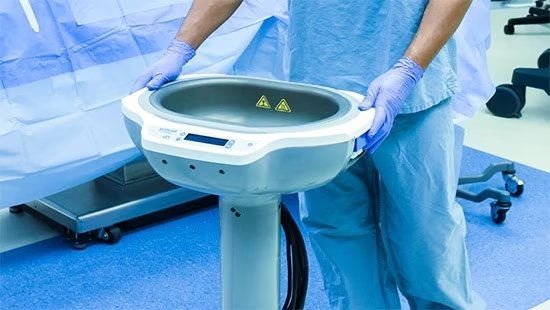Introduction:
Mammals and birds are homeothermic, maintaining a nearly constant internal body temperature. However, anaesthetic-induced inhibition of thermoregulation, combined with exposure to a cold operating room environment, can lead to postoperative hypothermia in unwarmed patients. Hypothermia is particularly concerning after Transurethral Resection of the Prostate (TURP) surgery, as it is strongly correlated with cardiovascular risk factors, especially in elderly patients. The use of room temperature irrigation fluids during TURP can further contribute to heat loss and hypothermia. In contrast, warmed irrigation solutions have been shown to effectively reduce heat loss and maintain hemodynamic stability.
Methods:
This study included forty-three male patients scheduled for TURP surgery under spinal anaesthesia. The operating room temperature was standardized at 23°C. All patients received warmed intravenous fluids perioperatively using an inline fluid warmer (3M™ Ranger™ Fluid Warming System). Spinal anaesthesia was administered, and patients were actively warmed using a forced air warmer (3M™ BairHugger™ warming blanket system) throughout the procedure. Warmed 1.5% Glycine was used as the bladder irrigation fluid, maintained at 40°C using a temperature-controlled water bath. The irrigation fluid’s temperature was continuously monitored to ensure it did not exceed 37°C, and if it dropped below this threshold, the fluid was replaced.
Results:
The study aimed to observe the effect of warmed irrigation fluid on core body temperature in patients undergoing TURP surgery. The data collected from the forty-three patients will be analyzed to evaluate the impact of warmed irrigation fluid on preventing perioperative hypothermia.
Conclusion:
The study’s findings will provide insights into the efficacy of using warmed irrigation fluid to maintain core body temperature during TURP surgery under spinal anaesthesia. This research is essential for improving patient care and reducing postoperative complications associated with hypothermia, particularly in elderly individuals with cardiovascular risk factors.


